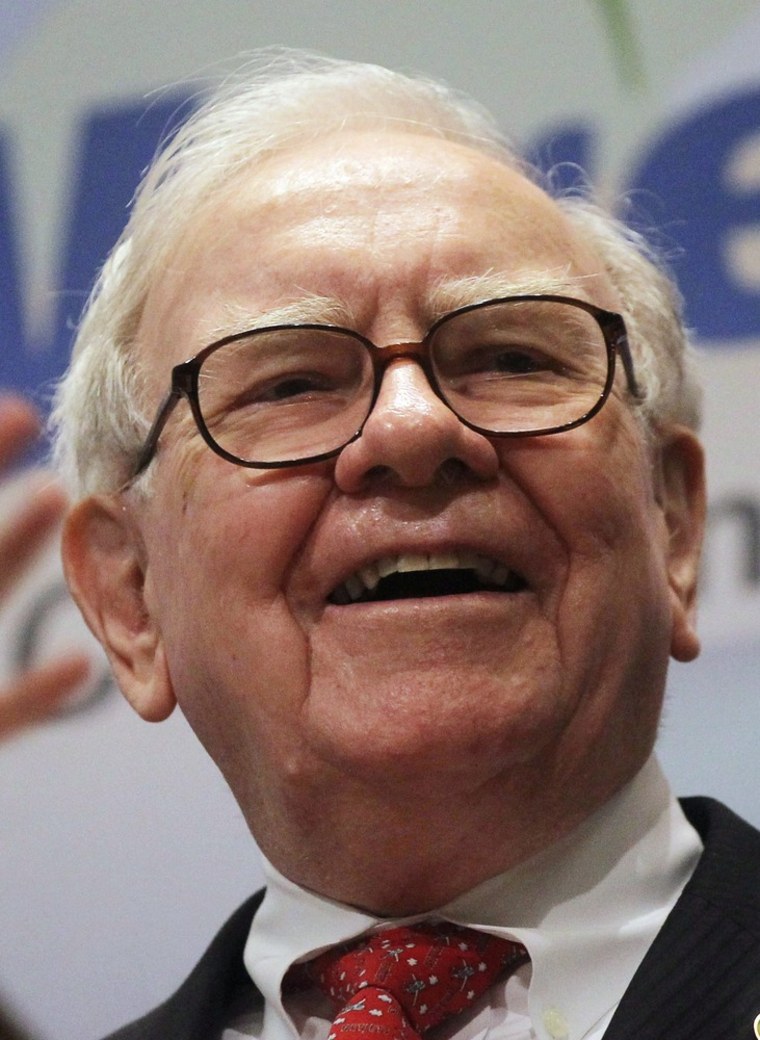It's almost tax day, which means that most people have by now seen just exactly how much of our hard-earned money will being going to Uncle Sam this year.
You might have noticed that we’re also hearing a lot more about the so-called Buffett rule.
The White House has been making a hard push for the rule, officially called the Paying a Fair Share Act of 2012. The Senate is scheduled to resume consideration of the bill Monday.
The bill would require people who make more than $1 million and pay less than 30 percent in taxes to pay Uncle Sam more. It got its nickname from billionaire investor Warren Buffett, who famously has called on rich people to pay more in taxes.
The estimated effect of the rule varies widely, but experts do agree on one thing: Even if it passed, the revenue the Buffett rule would bring in wouldn’t do much to help fight the massive federal deficit.
That may not matter so much, however. Even those who are against the Buffett rule concede that the debate isn’t really about whether it would help balance the government’s check book.
Instead, it’s about the idea that the world would seem a little more fair.
“It’s not solving the problem and it’s not fixing the tax system. It’s just addressing an issue that might viscerally bother people,” said Roberton Williams, senior fellow with the Tax Policy Center.
Still, the idea that some upper-class Americans are paying a lower tax rate than some middle-class Americans has clearly touched a nerve. A Gallup poll released Friday found that 60 percent of Americans favor the Buffett rule.
The rule is most heavily favored by Democrats and independents, but even among Republicans 43 percent support it.
To understand why, let’s go back to the origins of the Buffett rule.
Buffett, who made his billions running Berkshire Hathaway, got the debate going last August when he wrote an op-ed in the New York Times complaining that he paid a lower tax rate than anyone else in his office.
The very idea that one of the world’s richest men has a lower tax rate than this secretary created a firestorm.
“There’s something about really rich people with great lifestyles paying less than you or me that’s offensive,” Williams said.
In reality, though, Williams said many wealthy people – mainly “working rich” people such as executives, movie stars and athletes – are probably paying a higher tax rate than most middle-income Americans.
The exceptions are people like Buffett and presidential candidate Mitt Romney, who make a lot of money on investments rather than by drawing a paycheck. Those tend to be taxed at a lower rate.
(President Obama did not make $1 million last year, according to his tax return made public Friday, and paid a tax rate of about 20 percent.)
Conservatives may not like the attention the Buffett rule is getting, but even they admit the fairness issue is what has gotten people talking.
“Taxes must be high simply to spread the wealth, never mind the impact on the economy or government revenue. It's all about ‘fairness,’ baby,” the Wall Street Journal groused in an editorial last week.
Those who oppose it can perhaps take comfort in this Bloomberg story noting that, even if the Buffett rule does pass, wealthy people will likely find ways to get around it.
Related:
